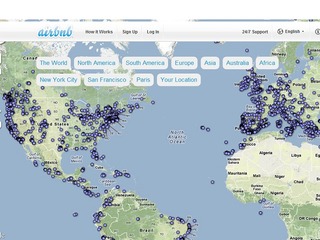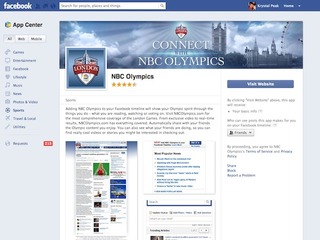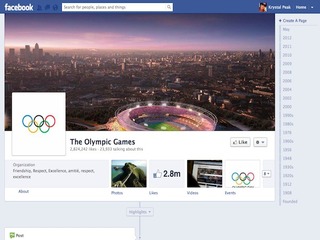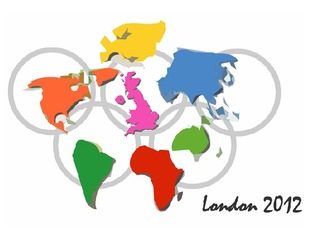DUOS expands AI capabilities to help seniors apply for assistance programs
It will complete and submit forms, and integrate with state benefit systems
Read more...
As security tightens up in London and organizers run through all of the possible issues that could hamper this summer Olympics from being an outstanding spectical of perfected althetic ability, one of the biggest concerns is whether London's network system will be able to handle the sheer number of people using cellphones, smartphones and Internet in the host city.
There will be hundreds of thousands of attendees, athletes, press and residents trying to use their mobile devices for Olympics-related status-updates, check-ins and communication.
Telecoms companies have told the BBC they will be able to cater to the surge in users during the Olympics, but in such a socially connected and mobile world it is hard to tell if this will truly be the case.
The last summer Olympics, in Beijing, was held in 2008, just one year after the debut of the very first iPhone and less that 8% of people owned a mobile device that connected to the Internet. Now, more than 18% of people have a smartphone and these phones sometime consume more data than your average laptop.
To prepare for the mobile demand of 2G and 3G connection around Olympic Park, the city and organizers have installed 30 mobile phone masts across the 2,000 square meter site to help reduce issues that could occur inside the Park.
Stuart Newstead, chair of the the body representing U.K. mobile operators and content providers, told the BBC:
At peak time when one set of spectators leaves and another arrives you will have between 200,000 to 300,000 people on site. It's as well prepared as it can be. The key to the planning has been co-operation between the operators to maximize the laws of physics, allowing a far denser configuration of masts and antennas than normal to ensure as much capacity as possible.
In addition to network boosts, the telecom company BT has also installed several additional WiFi hot spots, with broadband, to offer free access for certain phone carrier user.
Customers on networks will be able to buy coupons to access the hot spots costing roughly $43 for 500 minutes.
I, for one, will be interested to see how much social media will be tied into the Games (such as having people check-in to different venues, tweeting live and posting real-time reaction).
During most big events, this type of marketing and buzz would be encouraged, but because of the competition element and connectivity concerns this may not be a central marketing component for the Olympics.
The app focus
This Olympics will also be the first to really integrate so many apps, connections and way to follow the events whether you are at home, work, on the train or in the Olympic Park.
NBC, in partnership with Adode, is going let people show their pride wherever they go with the announcement of two new apps.
The first app, called Olympics Live Extra, will allow customers on satellite, cable and telephone companies to stream every event and every medal ceremony, adding up to over 3,500 hours of coverage in 32 sports.
The second app, called NBC Olympics, acts as a compliment to the first app, providing addition content, such as schedules and highlights.
Both apps were built and powered by Adobe. They will be on some Android tablets within Google Play, and on the App Store for iPhone, iPad and iPod touch.
NBC has also partnered with Facebook to launch an official Facebook Olympics page, featuring over 200 athlete profiles.
NBC Olympics and Facebook will work together to produce social media segments to air during television broadcasts across various NBC Universal networks and implement a data tool called the "Talk Meter" to inform its viewers about the stories, results, athletes, and events that are appearing on the social network.
All of these element will certainly help up ratings, engagement and interest in the Olympics, but will it also overload the system for those trying to use them in London? The world is waiting to see. One things is sure, thanks to social media, we will all hear about any hiccups that occur.
It will complete and submit forms, and integrate with state benefit systems
Read more...The bill would require a report on how these industries use AI to valuate homes and underwrite loans
Read more...The artists wrote an open letter accusing OpenAI of misleading and using them
Read more...





